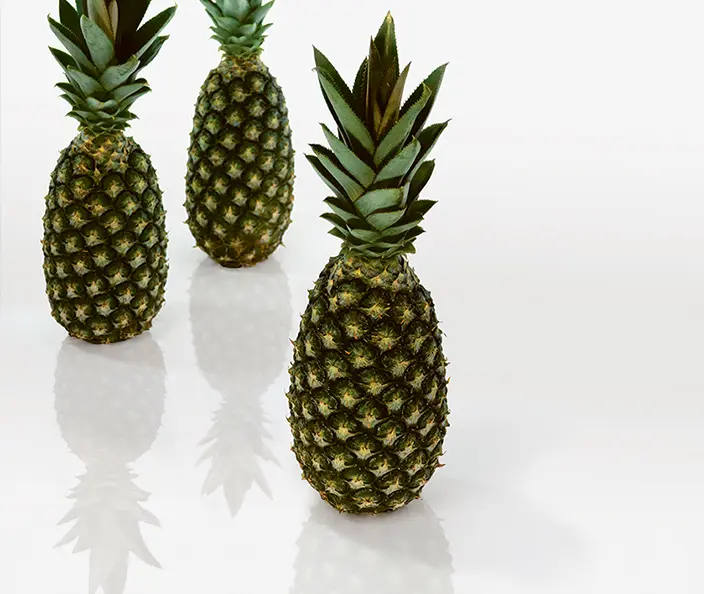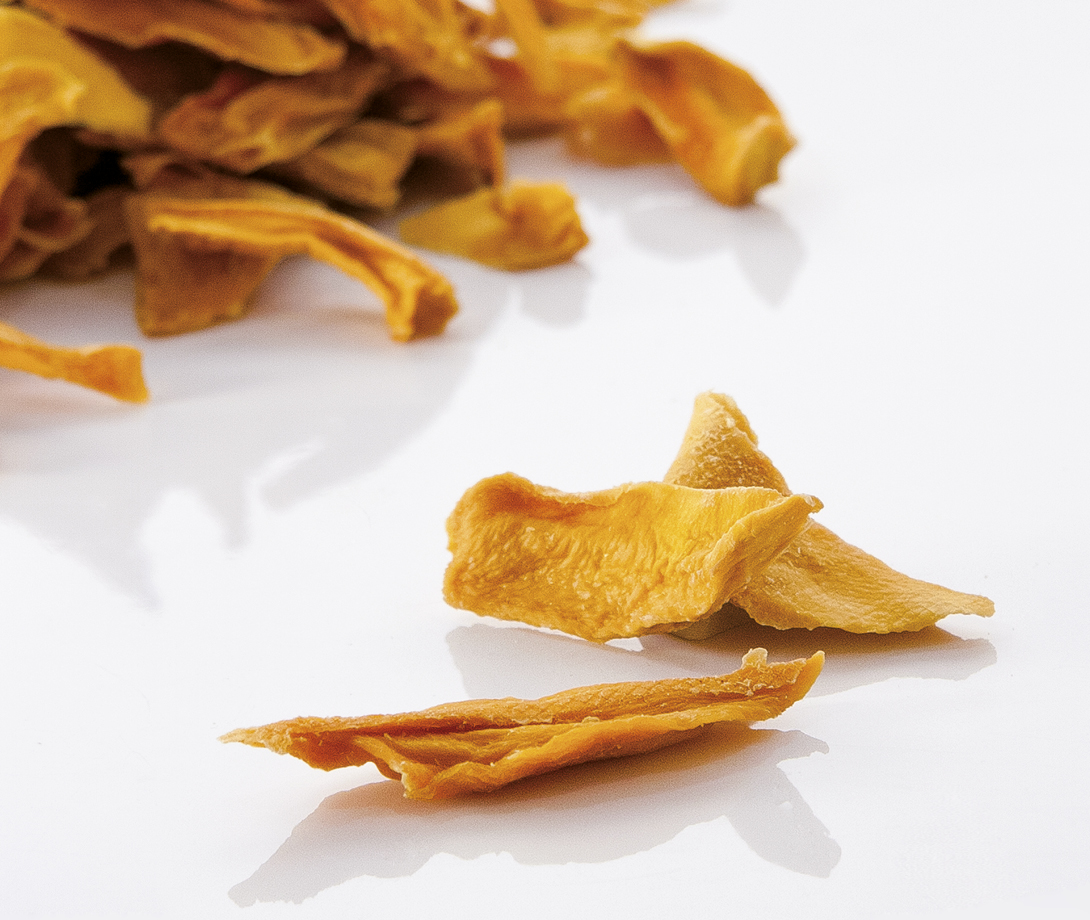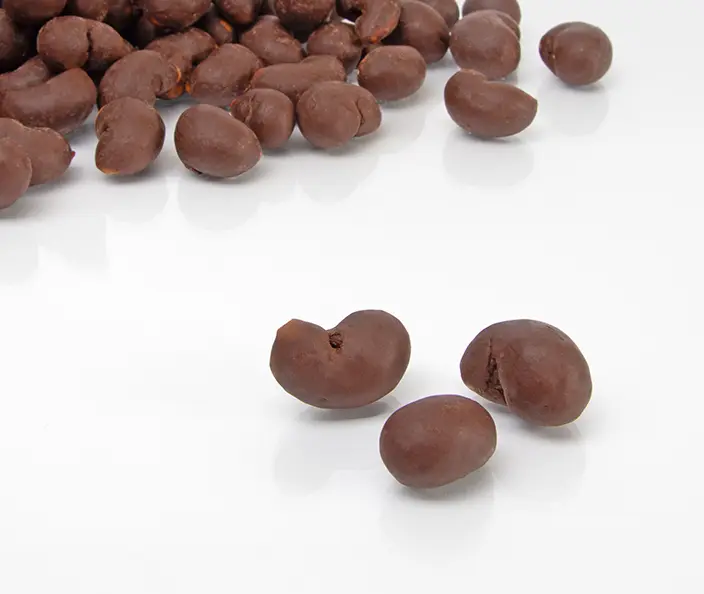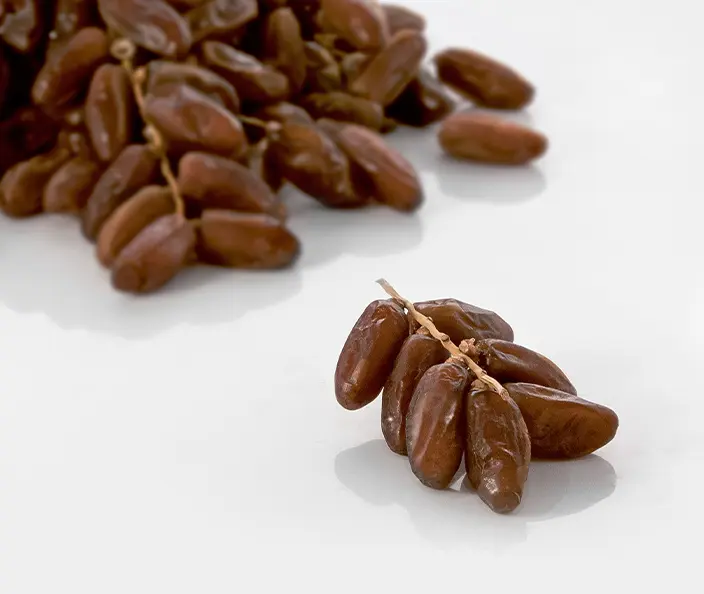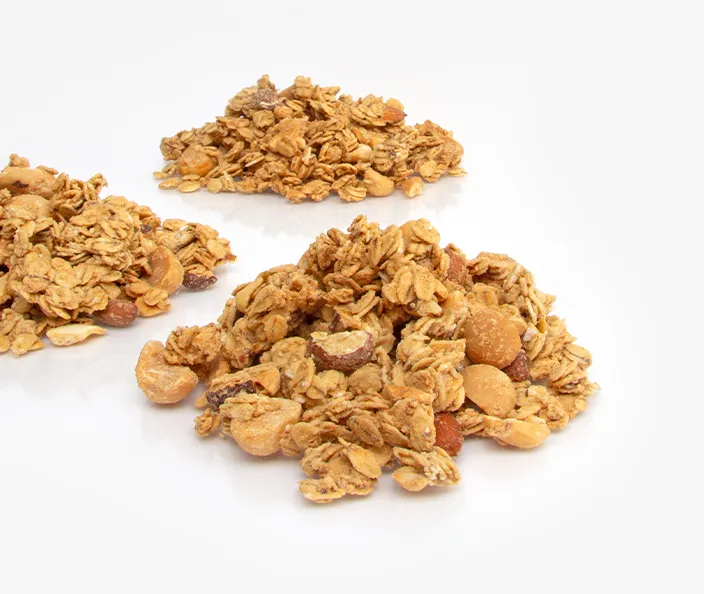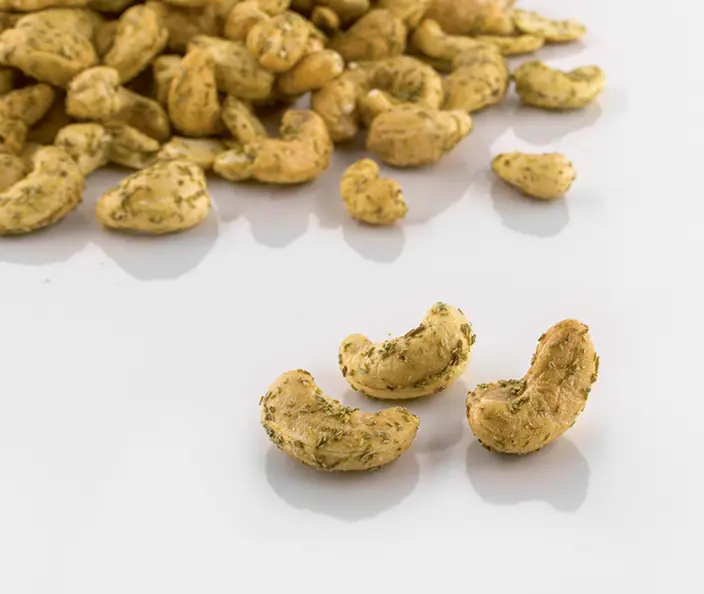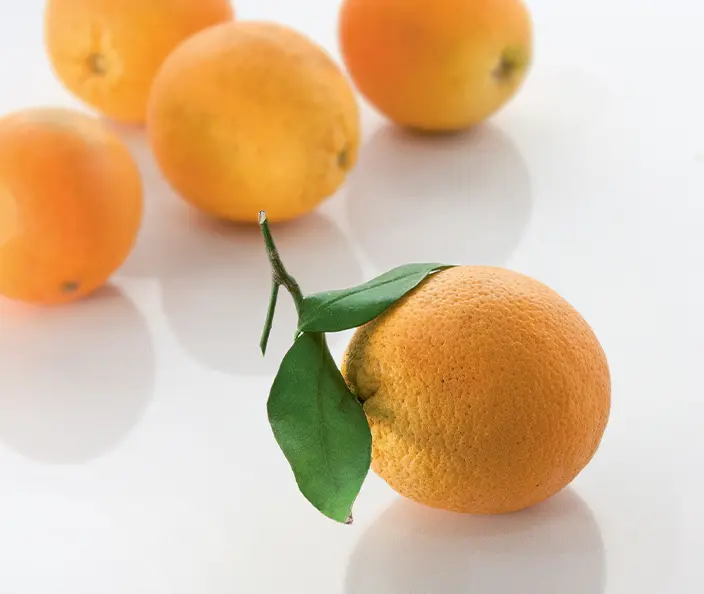Pineapple
Organic
Togo
Available for pre-order from: Summer
Our fresh Sugar Loaf pineapples come from the Maritime region in Togo. Our subsidiary, gebana Togo, sources the fruit directly from 19 family farmers who grow them on small plots of 0.5 hectares.
The Sugar Loaf variety produces green-black, conical fruits that are very sweet and soft – so soft that you can even eat the stalk in the middle. The flesh is white and exceptionally juicy.
These outstanding characteristics make the Sugar Loaf pineapple one of the best varieties in the world. However, this quality comes at a price: the fruit only lasts for a few days, after being harvested, which means that they cannot be reliably transported by ship.
This is one of the reasons why Sugar Loaf pineapples are rarely found in Europe. Nevertheless, we bring the fruit to you because, in our opinion, there is no better pineapple. We fly the fruit to you so that it arrives in perfect condition, just after being harvested.
Note on air freight
We offset the CO2 emissions caused by air transport fivefold. This compensation has proven to be relatively difficult in the past (more on this on our blog). Due to these difficulties, we are now investing the amount in photovoltaic systems in our new factory in Burkina Faso. Further information and the exact calculation will follow at the beginning of 2025.
The Sugar Loaf variety produces green-black, conical fruits that are very sweet and soft – so soft that you can even eat the stalk in the middle. The flesh is white and exceptionally juicy.
These outstanding characteristics make the Sugar Loaf pineapple one of the best varieties in the world. However, this quality comes at a price: the fruit only lasts for a few days, after being harvested, which means that they cannot be reliably transported by ship.
This is one of the reasons why Sugar Loaf pineapples are rarely found in Europe. Nevertheless, we bring the fruit to you because, in our opinion, there is no better pineapple. We fly the fruit to you so that it arrives in perfect condition, just after being harvested.
Note on air freight
We offset the CO2 emissions caused by air transport fivefold. This compensation has proven to be relatively difficult in the past (more on this on our blog). Due to these difficulties, we are now investing the amount in photovoltaic systems in our new factory in Burkina Faso. Further information and the exact calculation will follow at the beginning of 2025.
 How much is that?
How much is that?
7 kilos is equal to 6-8 pineapples.
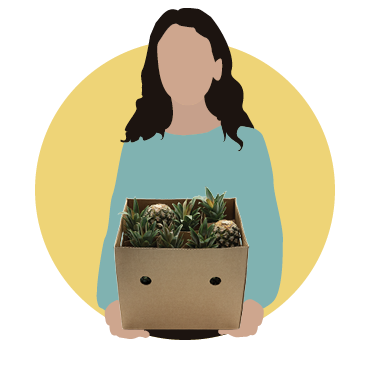
 When will my delivery arrive?
When will my delivery arrive?
If no specific delivery date is indicated for a product, we will ship your pre-ordered items during the specified month. For the latest information, please check our delivery schedule page. We will notify you as soon as your order is on its way.
| Arrival of the delivery | Order by: |
|---|---|
| November | 13.10.2024 |
 Storage & shelf life
Storage & shelf life
Store the fruit in a cool, dry place, such as the cellar, where it will keep for eight days. When stored in the refrigerator, pineapples lose their intense flavour. Remove the fruit from the cardboard box as soon as you receive it. Check the pineapples for bruises and minor damage. Eat these ones first. If you find mould, remove the affected fruits to prevent the mould from spreading.
Sustainability and supply chain
Producers
Grown by 19 family farmers in the Maritime region, on an average of 0.5 ha each.
Cultivation
Organic, no irrigation, harvested by hand.
Processing
Sorted by hand, never repacked.
Purchasing & Logistics
Purchased directly after the harvest from family farmers and cooperatives, since 2019.
Transport: Lorry from the fields to Lomé, plane to Switzerland/Germany.
Transport: Lorry from the fields to Lomé, plane to Switzerland/Germany.
ANTOINE AZI
FARMER FROM GAPÉ,
TOGO
The moment I can sell my products is quite simply the best.
"I love being a farmer and wouldn't want to do anything," says Antoine Azi. In addition to pineapples, Antoine grows tomatoes, cassava, beans, soy and maize. "I can feed my six children while meeting the needs of the community. But of course, I also face challenges. I don't have the money to cultivate more land, modernise my farm or install a sustainable irrigation system. Droughts and dry soil also reduce the amount we can produce."


 Login
Login


